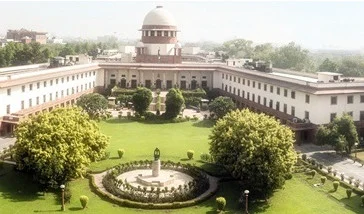Anwarulhaq
New Delhi; Feb. 20, 2024: In a dramatic turn of events, the Supreme Court today invalidated the election of BJP candidate Manoj Kumar Sonkar as the Mayor of the Chandigarh Municipal Corporation, declaring Aam Aadmi Party (AAP) Councillor Kuldeep Kumar the rightful winner.
This landmark decision, delivered by a bench comprising Chief Justice DY Chandrachud, Justice JB Pardiwala, and Justice Manoj Misra, throws a spotlight on electoral misconduct and highlights the court’s commitment to upholding democratic principles.
The controversy stemmed from the January 30 election, where Sonkar was declared the victor garnering 16 votes against Kumar’s 12. However, allegations of foul play soon arose, specifically concerning 8 ballots deemed invalid by the Presiding Officer, Anil Masih. These marked ballots, all cast in favour of Kumar, became the crux of the case.
Presiding Officer has made a deliberate attempt to deface 8 ballots which were cast in favour of the petitioner so that the BJP candidate will be declared as the elected candidate
After examining the ballots and scrutinizing CCTV footage, the Supreme Court found that Masih had deliberately defaced the 8 votes by drawing lines across them, effectively disenfranchising Kumar’s supporters. This act, deemed “a deliberate attempt to alter the course of the election,” led the court to conclude that the results were “illegal” and required nullification.
“The Presiding Officer has made a deliberate attempt to deface 8 ballots which were cast in favour of the petitioner so that BJP candidate will be declared as the elected candidate,” the Supreme Court observes.
Physically examining the ballots in question, the Court found Masih had deliberately defaced votes intended for Kumar to declare BJP the winning party. The apex court remarks, “Yesterday, the Presiding Officer made a solemn statement before this Court that he had done so as the 8 ballots were defaced. It is evident that none of the ballots are defaced.”
Taking Masih’s misconduct seriously, the SC also directed criminal action against him for intentionally making false statements under oath. “The conduct of the Presiding Officer has to be deprecated at two levels. Firstly, he has unlawfully altered the course of Mayoral election. Secondly, in making a solemn statement before this Court on 19 Feb, the Presiding Officer expressed falsehood for which he must be held accountable,” the SC Court noted.
Setting aside the entire election would further undermine democratic values…the only infirmity was in the counting process and Masih’s actions
Countering calls for fresh polls, CJI Chandrachud added, “Setting aside the entire election would further undermine democratic values…the only infirmity was in the counting process and Masih’s actions.”
The judgment went beyond simply reinstating Kumar. The court initiated criminal proceedings against Masih under Section 340 of the CrPC for making false statements before the court. Justice Pardiwala, delivering the verdict, declared, “The conduct of the Presiding Officer has to be deprecated at two levels. Firstly, he has unlawfully altered the course of Mayoral election. Secondly, in making a solemn statement before this Court on 19 Feb, the Presiding Officer expressed falsehood for which he must be held accountable.”
Beyond the immediate political ramifications, the Supreme Court’s intervention sets a precedent for upholding electoral integrity. The judgment serves as a reminder that democratic processes rely on transparency, accountability, and the impartial conduct of officials. By punishing Masih and overturning the manipulated results, the court has reaffirmed its role as the ultimate guardian of a just and equitable electoral system.

